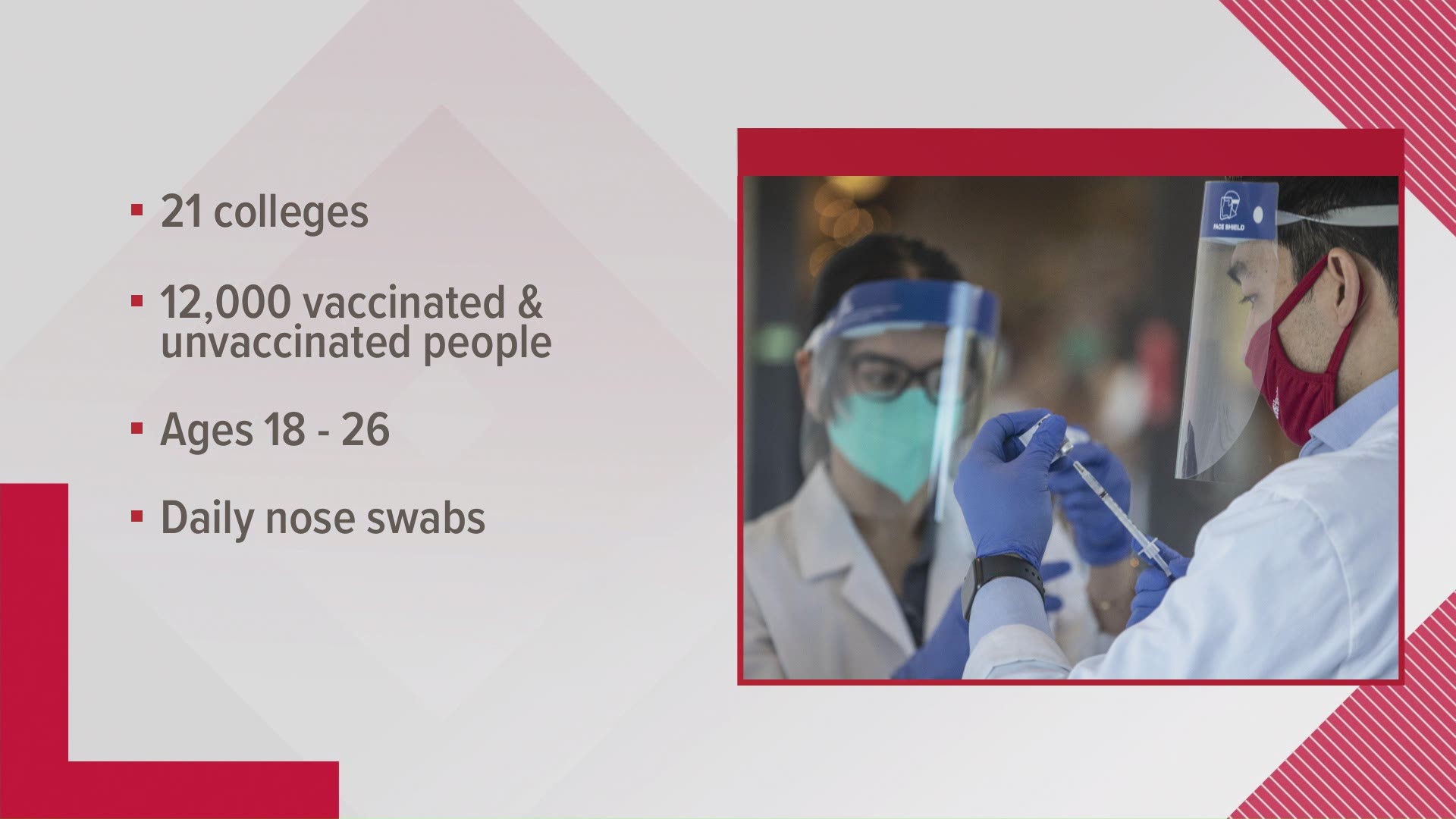SEATTLE — A new study involving thousands of college students in the United States aims to determine whether someone can still carry and transmit the coronavirus after they’ve received Moderna’s COVID-19 vaccine.
The COVID-19 Prevention Network (CoVPN), headquartered at the Fred Hutchinson Cancer Research Center in Seattle, announced the “Prevent COVID U” study Friday. The study will involve monitoring an estimated 12,000 students ages 18-26 at 21 universities across the U.S. over a five-month period.
The Prevent COVID U study is designed to determine if Moderna’s vaccine can prevent symptomatic and asymptomatic COVID-19 infection, limit the virus in the nose and reduce transmission of the virus from a vaccinated person to their close contacts.
“The new trial will tell us whether a person can become infected after they’ve been vaccinated and if the vaccine will stop the virus from spreading person-to-person,” said Dr. Larry Corey, principal investigator of CoVPN’s operations program, professor at Fred Hutch and one of the study leaders. “The answers to these questions have implications for public health and will allow us to make more science-based decisions about mask use and social distancing post-vaccination – especially when new variants are emerging."
Half of the participants will be randomly selected and vaccinated when they enroll in the study, and the other half will receive the vaccine four months later. The students will be required to swab their nose for COVID-19 daily, complete questionnaires through an eDiary app and periodically provide blood samples.
Around 25,500 people identified as “close contacts” by the participants will also be invited to join the study. Close contacts who agree to participate will be asked to answer weekly questionnaires, provide two blood samples and take daily nose swabs for two weeks.
“Our hope is that we demonstrate that COVID-19 vaccines prevent people from getting infected with coronavirus in the first place and that it stops transmission to others,” said Corey. “The emphasis on following close contacts among those students who acquire COVID-19 in the trial is one of the unique aspects of the trial.”
Students enrolled at the following universities who are interested in participating in the study can learn more at PreventCovidU.org:
- Charles Drew University
- Clemson University
- Indiana University – Bloomington
- Morehouse School of Medicine
- Northwestern University
- Stony Brook University
- Texas A&M – College Station
- Texas A&M – Kingsville
- University of Arizona
- University of California – San Diego
- University of Colorado – Boulder
- University of Florida – Gainesville
- University of Illinois – Urbana-Champaign
- University of Kentucky
- University of Maryland – College Park
- University of Nebraska
- University of North Carolina
- University of Virginia
- University of Washington
- Wake Forest
- West Virginia University
The study is funded by the Federal COVID-19 Response Program and the National Institute of Allergy and Infectious Diseases.

